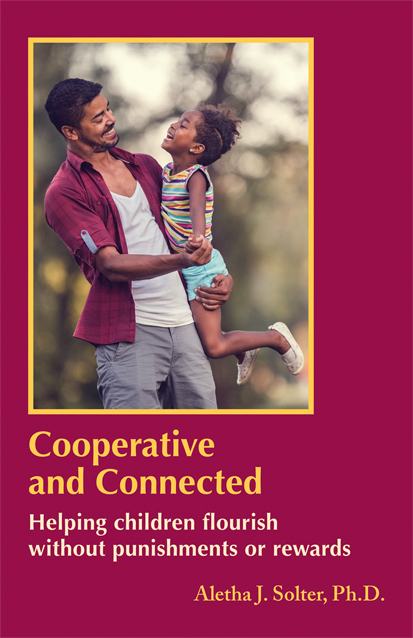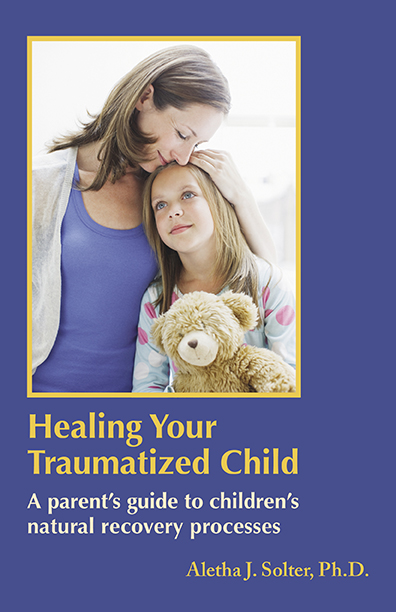Child Diagnosed with both ADHD and Anxiety Disorder...HELP!
by Aletha Solter, Ph.D.
Question:
My four-year-old son was placed in a behavioral school three weeks ago for observation for ADHD. He was clinically diagnosed with this by the psychiatric doctor there. They decided to run some psychological tests to rule out anything else. They prescribed Ritalin. After a week the results came back and some other doctor decided our son had an Anxiety Disorder, which they said could have the same symptoms. Is this true? They took our son off Ritalin and put him on Zolof
My husband and I feel like puppets. We feel that these people have no idea what is going on. We feel just as lost as we did at the beginning. Our son is just as hyper and inattentive as ever. We don't know what to do for this problem now since the doctors have decided to treat him differently. Will Zoloft help the ADHD symptoms? We were told that they wanted to treat the anxiety first and see if the ADHD symptoms went away. If not, then they would reevaluate and treat the ADHD. This is very stressful for us to wait the eight weeks for the Zoloft to kick in while the ADHD symptoms are so prevalent. How could a whole psychiatric school misinform us on a diagnosis of ADHD and another doctor come say, "Oh no, it is anxiety" and everyone change their tune?
My husband and I are at the end of our rope. We hate putting our son on so many medications, and in a few months, maybe having to change again. We have considered stopping all meds and treating him with herbs and diet. Our doctor was against this, but they keep changing their mind on what the problem is, and we don't have the money or strength to just sit back while my son is used as a medical tool.
Answer:
It is obvious from your question that you are a committed advocate for your son. He is lucky to have parents who think about his needs and search for ways to help him.
The decision about whether to give your son psychiatric medication is yours to make. However, I suggest that you inform yourself thoroughly about the effects of these drugs. Many of the drugs prescribed for behavioral disorders in children are addictive and have disagreeable side effects, and they often only mask the problem without really solving it. Furthermore, the safety of long-term use of many psychiatric drugs has not been established for young children.
It is important to realize that doctors are trained to consider the possible medical causes of behavioral symptoms in children, and to prescribe drugs. However, the underlying emotional and environmental causes are sometimes overlooked. The diagnosis of ADHD is made on the basis of behavioral observations. In the majority of cases, no neurobiological factor is ever found to be the cause, and there is no proof that the condition is hereditary. The same is true for anxiety disorder. For both ADHD and anxiety disorder, there are many other possible factors to consider.
In addition to possible dietary causes, there are three other factors to consider, which can contribute to symptoms of hyperactivity, distractibility, or anxiety. These are often overlooked by medical professionals but are supported by research:
1. School setting. There is research indicating that many ADHD children function "normally" in less rigid, open classroom settings. These children show attention deficits or hyperactive symptoms only when they are being forced to do something that they are not interested in doing. When allowed to choose their own activities and to learn through movement, hands-on activities, games, and self-paced instruction, many of these children's symptoms disappear.
2. Television and videos. There is evidence that the rapid shift in images on a TV screen causes children to lose their ability for sustained focusing. Also, the activity, violence, and impulsive behavior of cartoon and live characters in children's programming serves as a role model for similar behavior. Many children are frightened by scenes of violence or danger on TV and are in a state of chronic tension and anxiety because of this. Furthermore, children are forced into unnatural passivity while watching TV, and this is often followed by a rebound effect: a burst of pent-up energy as soon as the TV is turned off.
3. Stress and trauma. There is increasing evidence that ADHD can be caused by an overload of stress or from the effects of past trauma. In fact, the symptoms of post-traumatic stress disorder can look very much like ADHD. This would be especially likely in the case of your son, who is also showing symptoms of anxiety. This does not mean that you are to blame for your child's symptoms, but it is worth considering all the possible sources of stress in his life, both now and in the past.
If you suspect stress or trauma
Ask yourself the following questions: Is his life overly pressured or hurried? Does he experience punitive discipline or unrealistically high expectations (at home or at school)? Is your family sruggling with medical, emotional, or financial problems? Did he experience any major trauma in the past, such as prenatal stress, a difficult birth, hospitalization, separation, abuse, a death in the family, or other frightening event?
If you think that current stress is responsible for your son's symptoms, look for ways to make his life less stressful. Family therapy could also be helpful if your family stress level is high. If you think that past trauma is a possible source of his problems, individual psychotherapy for your son could be beneficial. Look for a trauma-informed therapist who has experience with traumatized children. If his trauma was very early, look for a specialist trained in perinatal psychology.
You can help your son release stress at home by allowing him to cry and rage as much as needed, without trying to stop him. Tears and tantrums are important stress-release mechanisms. After a good cry, children are usually calmer and have a much longer attention span. Unfortunately, crying and raging are often considered to be part of the problem for children who receive the ADHD diagnosis, and parents are told to ignore, distract, or even punish their children during these outbursts. I recommend an accepting attitude towards tears and tantrums for all children (not only for those with emotional or behavioral problems). In my consulting practice, many parents have reported to me that their children's hyperactive behavior or anxiety have greatly decreased when the parents begin to respond to their children's tears and tantrums with acceptance, love, connection, and empathy.
I encourage you to keep searching and questioning, and above all, don't give up. Get all the help and support you need.
About Aletha Solter
Aletha Solter, PhD, is a developmental psychologist, international speaker, consultant, and founder of the Aware Parenting Institute. Her books have been translated into many languages, and she is recognized internationally as an expert on attachment, trauma, and non-punitive discipline.
Aware Parenting is a philosophy of child-rearing that has the potential to change the world. Based on cutting-edge research and insights in child development, Aware Parenting questions most traditional assumptions about raising children, and proposes a new approach that can profoundly shift a parent's relationship with his or her child. Parents who follow this approach raise children who are bright, compassionate, competent, nonviolent, and drug free.
For more information about the possible causes of ADHD and alternatives to medication, see Aletha Solter's books, Cooperative and Connected, Raising Drug-Free Kids, and Healing Your Traumatized Child.


